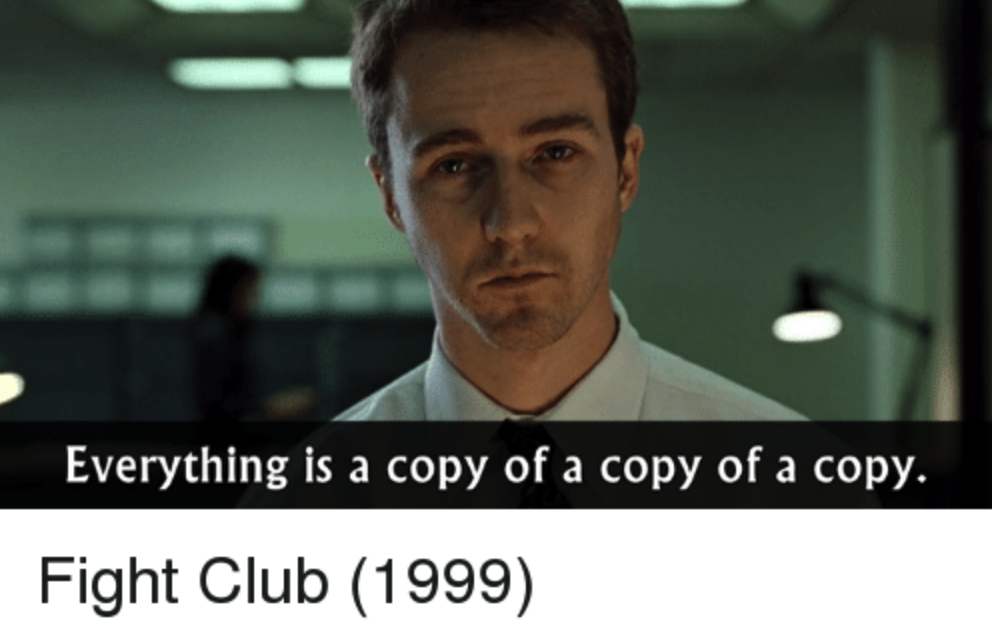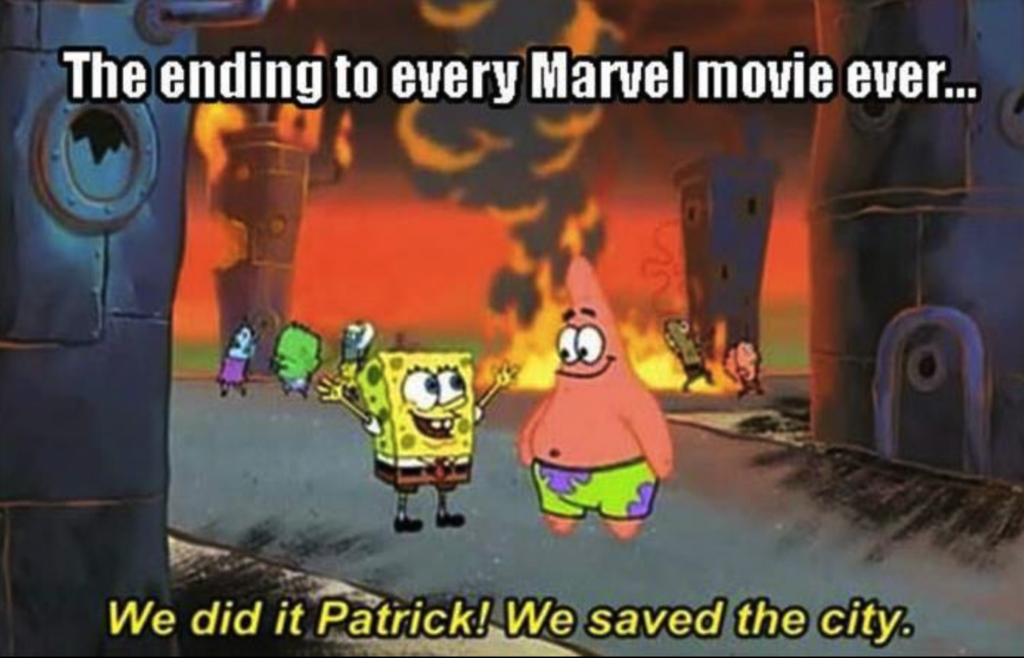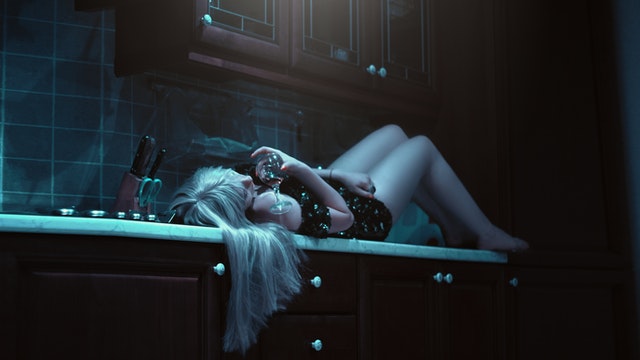

Redemption is a much more prolific theme than most might realize.
Whether it is a fun, romantic Helen Fielding (Bridget Jones Diary), a gritty Cormac McCarthy (The Road) or a therapy-inducing Ken Follett (Pillars of the Earth), they hold one common thread.
Redemption.
Will Bridget finally see the truth of herself—that she’s shallow—before she commits to loving the wrong man?
In a world gone mad, can the actions of a Man and a Boy redeem faith in humanity?
In a world of unspeakable violence and savagery, will justice ever be served? Is Tom Builder—a man who abandons his newborn by his wife’s grave—worthy of redemption?
Whether the story is a short cozy romance or an epically long historical, we still see this embedded desire that even bad people deserve another chance. I believe this is a good thing, and demonstrates that hope springs eternal with us humans.
Thus, today, we’ll explore the notion if all characters can be saved? Should they be? And how far can we push the line before readers no longer care? What does the undertone of redemption add to story and what do we risk losing without it?
***Feel free to skim for what applies to you. My blogs are long, but I guarantee you they are a LOT shorter than the thousands of pages of reading I use to boil down for this “bone broth.” Moving on….
Flawed Characters ALL Require Redemption


This weekend, Spawn and I (horror junkies that we are) watched Emesis Blue on YouTube. Overall, enjoyable. Some INCREDIBLE imagery. Very well executed. But, since once an editor always an editor, it is almost impossible for me not to find SOMETHING that could have been done a bit better.
So far I have only discovered about 5 perfect books in the thousands I have read that I wouldn’t change a word (FYI: None are mine). Same with movies.
The ONLY thing I could pick on was the film didn’t make it really clear WHO I needed to “root” for. Horror can, like literary, be a genre that is ALL BAD PEOPLE. You literally find yourself simply siding with the least bad, bad guy…which is fine.
But do you want your story to be “okay” or “fine” or “Good enough”? Or do you want it to go to that next level?
This is where character arc can be a game-changer. When I mention “redemption” it implies the character needs to learn, change, grow or evolve in some way.
When characters are “too perfect” or the converse “too horrible/stupid to live” the story can stall. This isn’t the 1950s. Shock value and BIG THINGS HAPPENING are okay, but they’re sorely lacking when it comes to hooking an audience for the long-haul.
We can have the most amazing writing, prose, setting, and even clever plot, but if readers don’t CARE about the characters, they grow easily bored. Bad things need to happen but….
BAD THINGS Alone are NOT Conflict


Conflict is simple. Two people with different levels of POWER wanting their own thing…collide.
That is it. Simple, but not easy.
In police procedurals, the BBT (Big Boss Troublemaker) is the CORE ANTAGONIST responsible for creating the story problem in need of solving by THE END. Often it is a killer, criminal, thug, or someone breaking the law in some way.
BUT….
Where the MC will often experience the MOST pushback will be from those closest. Every scene needs an antagonist. We need to make the audience worry. If everything is too happy-dappy and everything is sunshine and rainbows, that is not a novel. It is an overly long Hallmark card.
Back to the police procedural and uneven power.
Detective Hardnose WANTS to hunt down KILLER.
Police Chief Blowhard WANTS to win an election.
Detective Hardnose’s methods are unorthodox because that is only way to catch the killer BUT Chief Blowhard is getting bad press. HE wants the killer caught…but with kid gloves that don’t upset voters.
See the power imbalance? Detective Hardnose STILL needs to stop a killer. He STILL knows conventional policing won’t work, BUT he needs to use his skills and brain to figure out a workaround.
Whether it is conflict with a superior officer, Internal Affairs, the Feds, meddling politicians, or even the detective’s own FAMILY…note the power struggle. THIS is what turns pages.
CAN the detective catch the killer, please his boss, keep his badge and maintain his marriage and relationship with his kids?
We WORRY and WORRY IS FICTION GOLD. Regardless the genre, your reader needs to worry every single page all the way until THE END.
An EVEN BIGGER KAIJU!


There is a great little flick called Pacific Rim. And forgive me because it will seem like I am contradicting myself, but bear with me. Pacific Rim is a fantastic flick for young boys. I grew up on anime (Voltron, Transformers, Robotech, etc.) so it was a fabulous throwback to that.
This said….
The entire plot is basically some inter-dimensional rift has opened up along the—you guessed it—the Pacific Rim, where giant monsters wriggle through to unleash mass destruction on large cities (popular back when we still found CGI fascinating).
Mankind creates basically giant robot suits to battle Godzilla-esque creatures.
The ENTIRE plot is really just…a BIGGER KAIJU! Then a BIGGER KAIJU! And, in a totally unexpected plot twist…the BIGGEST KAIJU EVER! (Until the next movie).
That is it.
And if you’re writing campy stories/movies that appeal to predominantly young boys, teen boys and/or middle aged women with the sense of humor and tastes of a 9th grade boy…FABULOUS.
LOVE SHARKNADO! Almost as much at Lavalantula.
But these are B-movies people enjoy for the precise reason they are so wonderfully BAD. I bet you most folks couldn’t NAME a single character from any of these kinds of movies. We also really never worry in any of these “stories.”
When it comes to BOOKS? Here’s the problem.
Most People Don’t Like to Read


It is an old post but a lot of my content is evergreen. Check out Why Traditional Marketing Doesn’t Sell Books for a more in depth breakdown. Everything in that post from 2011 is true today. Actually much MORE SO since we have so many other mediums of entertainment all clamoring for our attention.
But, when surveyed, something like 94% of people admit that reading is something they want to do more of in theory, but never DO. If asked to list the top 10 or even 20 things they believe they’d like to do with their spare time…reading doesn’t make the list for MOST literate people.
That’s the “bad news.” The “great news” is people LOVE to read…they just don’t know it yet.
If you don’t believe me, how many people have you told you were a writer and the FIRST WORDS out of their mouth were, “Have you read 50 Shades of Grey?”
They might not read ANY OTHER BOOK, but “regular people” (code for “future readers”) are absolutely CULT-LIKE when they find a book (or series) they fall in love with. They’ll genuinely believe they still hate to read…but they love everything Harry Potter, Hunger Games, 50 Shades, etc.
They’ll practically have a SHRINE with all the hardbacks, the merch, the movies, etc.
What this means is we writers have to do better. We can’t hook like 1950s pulp novels that sold like hotcakes because what else would someone do on a long bus ride, in a waiting room, during bad weather, etc. What this ALSO means is that stuff that hooked 20 years ago, just will not work today. Apps and games and YouTube are low-hanging and shiner/easier fruit.
Readers are Narcissists


HUMANS are narcissists. Use that. Why do we (the nerdy readers who cannot FATHOM NOT loving books) get hooked on certain books or series? Usually, it is because we see something of ourselves. We cling onto particular characters because they reflect us in some way for good or bad. What we are, what we wish we weren’t, what we aspire to be.
This is why that redemption aspect is SUCH a game changer.
We cannot relate to super perfect people. In fact, there is a human psychological phenomenon referred to as Schadenfreude that explains exactly why we’re more prone to root against perfect people.
I get it sounds horrible, but back in the day of tabloids, what sold more copies? Super Hollywood Starlet with cellulite? Or Super Hollywood Starlet looking freakishly and inhumanely gorgeous?
Cellulite obviously.
It’s nice to nice to knock perfect people “down a peg,” WHY? Because it humanizes her. It wasn’t per se we wished anything horrible on her, only we couldn’t see her as one of “us” so long as she had unfathomable natural beauty, the perfect body, a gazillion dollars, and was even NICE!
***Feel free to insert whatever superstar/rockstar, etc.
We were fascinated not by “bad things happening to her” as much as realizing she was a person just like us.
So, if we KNOW humans are wired this way….
USE IT!
Make Characters NEED Redemption


Even if we go to the Hallmark movies, please appreciate that millions and millions of people love watching every year, especially at Christmas. We can easily see the human need for redemption. Hallmark (as formulaic as it is) still offers super perfect but FLAWED characters.
Obviously the plots are usually over the top because, while Hallmark might be formulaic, the formula WORKS.
Same with cocaine, FYI.
Even if the main love interest is the heir apparent to some tiny country no one’s heard of, something in him is missing/damaged/broken that only the love interest can fix. Is he too serious? Has he become unbalanced? All work and duty and no fun? Does he take his role for granted?
Same with the gal. Maybe she is a spunky assistant who’s pretty and clever and kind…but she is usually a hopeless klutz, is super insecure, is socially oblivious, is overshadowed by a sibling. Whatever. OR, she could be the one who is the “ice queen” who is all work and no fun.
Doesn’t matter.
It does mean your characters need to be their own worst enemies and the PLOT is all that can save them from themselves.
Redemption to Scale


The great part about thinking in terms of redemption (instead of “character arc”) is that it makes it a) practical and b) scalable.
Obviously if I am writing a cozy mystery, then an MC with a habit of cocaine and hookers is a poor choice. Instead? A hopeless busybody who’s meddling comes back to bite.
If, however, I am writing a gritty action thriller, then a well-meaning busybody is a poor choice. And cocaine and hookers for the win!
For those who want to do or even TRY NaNoWriMo (which I always recommend), this “redemption” idea will be important to keep you going for the long-haul.
I recommend starting with a NEW idea (especially if you struggle with finishing). Seems like bad advice, but bear with me. I’m going to offer you a new process to try.
Get your “idea” then whittle it into ONE SENTENCE.
What is your story ABOUT? I have a walk through here HOW to do this.
Pitch Your Story in ONE Sentence
Once you have that sentence, think about what would make your character emotionally intriguing? Sure, they’re a 100th degree blackbelt, know 15 languages, do parkour like Jackie Chan and all that is great…
But the more superlatives we add, oddly enough the less interesting the character becomes.
All those “bad@$$” qualities aren’t what make the character interesting. What makes them interesting is they have 100 superlative qualities but THIS FLAW lays them low.
Will They EVER Succeed?


Okay, so flaws. This is where we have to do some of the more delicate work in our craft. AGAIN, genre will inform this. Hallmark-style romance is NOT about hard-boiled terrible people doing terrible things to even more terrible people. Converse is true as well.
Y’all got that because you’re super smart.
With the lighter reads, we have to be careful we don’t make everyone too perfect. When it comes to other genres, this starts to scale.
On one end of the spectrum is Lee Child’s Jack Reacher. Former M.P. who lives off the grid for whatever reason and always seems to find trouble. His flaws? People skills are often terrible, he pisses off authority figures, and his personal life is…yeah.
The other side of the spectrum are your anti-heroes. They’re SO BAD but you cannot help rooting for them. Think Lestat in Interview with a Vampire.
So get your idea into ONE sentence then CAST appropriately. What does THIS story problem (plot) have that will serve as the crucible to refine that flaw?
The HBO Series True Blood did this phenomenally! Eric Northman is the oldest of the vampires and he’s lived SO LONG life has no meaning…until he falls for Sookie. BUT, his Viking/Vampire ways, while his greatest asset, also create the most problems.
With Redemption, Balance is KEY


This is where a LOT of intentional reading is your friend. You do not have to reinvent the wheel. The wheel works. And odds are, if you read enough, you’ll have enough pieces to create something wholly unique. The same but also totally NEW! Reading will also train you in certain techniques.
Back to balance.
We cannot write a book everyone loves. EVERYONE is not my audience or yours. I absolutely loved The Girl on the Train. The MC is a really, really bad alcoholic, thus an unreliable narrator. I had no problem with her, but she wasn’t for everyone.
Conversely, I read a “suspense/thriller” that was traditionally published and had a gazillion 5 star reviews…and the character was too dumb to live. I finished it because I am stubborn and I think we can often learn more from bad books than good.
It was as if the author had never read the genre and all I wanted to do was scream and throw the book…which I would have done except I read on my phone and that’s too expensive to break.
Proving my point that everyone is different.
How to Redeem the Seemingly Irredeemable


So for those who read the lighter genres, make sure to give them some relatable flaws. For everyone else….
Anti-heroes are difficult. There is a fine line we have to tread. We will not be able to make everyone happy. My new anthology WTH Did I Just Read? has a sampling of my writing. I LOVE anti-heroes and unreliable narrators. Will some love EVERY character in every story?
Duh, obviously *hair flip*
Kidding. Even I know that I might totally turn readers off on ALL of them or some of them or one of them.
If, however, you want a gritty character, tips for “redemption”….
- Make them the lesser of evils.
Dr. Hannibal Lecter might be terrifying, but not nearly as terrifying (or reprehensible) as the men he takes down (Eg. Mason Verger).
2. Give them a glimmer of a characteristic that is deeply likable.
Jessica Knoll’s The Luckiest Girl Alive features Ani, who is a scheming, shallow, conniving “Mean Girl.” At first glance, she is a horrible human being. She’s vain, gold-digging, and will do almost anything to get ahead professionally. Yet, in one of the opening scenes, Ani is interviewing for the very coveted position as her intern at a super prestigious fashion magazine.
How does she choose? She takes the applicants for coffee downstairs at the little newsstand where a disfigured immigrant named Loretta works. When the stand first hired Loretta, people complained because she was unsightly (burn scars), spoke broken English, and had a bit of body odor.
ANI, however, noticed all the coffee was fresh, including the creamers (even the soy milk). The store was always spotless and the magazines were artfully displayed.
Ani not only notices what others do not, she JUDGES others on how they TREAT Loretta. The minute they whisper anything cruel or degrading, Ani blackballs them.
She is deliciously awful.
3. Make them sympathetic.
Yes, in The Girl on a Train, Rachel is a spiraling alcoholic…BUT when you learn what she survived and WHY she is using booze to cope, it “can” soften you enough to give her the benefit of the doubt hoping she’ll get her act together with the addiction.
Structure can also be your friend.


IF you struggle to make them sympathetic, then have another character who sees the good in them. This worked with Sookie and Eric.
I just finished listening to an audiobook that is among those elusive “perfect books” I mentioned earlier. Old Country is a ghost story/psychological suspense/horror that left ME shaking. I vacillated between I dreaded to read more, but also could not read FAST ENOUGH.
One of the reasons I LOVE the horror genre is it is the toughest genre to write well. For the story to work, you really kind of need characters to do dumb, counterintuitive or even self-destructive things.
How did Old Country pull this off without characters falling into unlikable/too stupid to live? There are two MC POVs, one the husband and the other the wife (a.k.a. the “Buddy Love” structure).
The husband is belligerent, stubborn to the point of ridiculousness, self-destructive, impulsive, etc, etc. which the story demands for plausibility and also for one HELL of a knockout ending.
We “get” he’s a combat veteran in the opening scene, so we already forgive A LOT.
But not everything…
THIS is where the author did a brilliant job by adding in the WIFE’S POV. Wives have a way of seeing in ways we cannot, in ways their husbands cannot. True in life and in fiction.
The wife serves as a foil. She’s a sort of an advocate there to tell us (the reader) as well as other characters that “this reaction was over the top, even for him.” Or that “something had to be terribly wrong because, while he definitely had an anger problem, he’d NEVER ONCE raised his voice like that, so he HAD to be TERRIFIED.”
The only thing I would caution here is that this partner character needs to serve the story more than just being there to “explain away” bad behavior.
But the cool thing is…they can explain away bad behavior. They can smooth the rough edges that might, otherwise turn a reader totally off our story.
Think Frodo and Samwise or Dr. Watson and Sherlock.
The “Buddy Love” structure is fantastic if you need to balance out a particularly irascible character. They can also help the other character arc because that character is just too blind/damaged to do it on their own.
Redemption is wonderful in life and it is fiction GOLD.
***Why else would we have rooted for SPIKE all those years in Buffy?
Redemption makes characters fascinating. They’re such a danger to themselves and others we wonder if they’ll ever get their act together. We want them to because if THEY can do it, so can we.
I LOVE Hearing from You!
What are your thoughts on redemption? Do you see how common this theme really is? Does it add that little extra je ne sais quoi to a story for you, too? Who are some characters you never thought could be redeemed? Are there others you wish HAD been redeemed?
